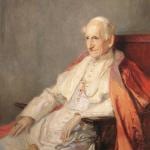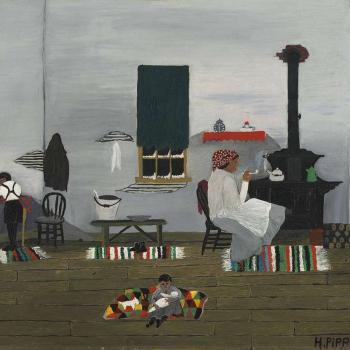That was until one day after daily liturgy. This isn’t that normal in Ruthenian churches, but mine offers it early a few mornings a week. My fiancée and I thought it might be nice to go—and so we did! Afterward, all those in attendance went for coffee. There were only a few of us—five, I think. At some point, father began discussing “Lesz’s birthday party.” I asked, “who’s Lesz?” And so, I found myself initiated into what felt like the best kept secret in New Jersey.
They told us that they had to plan a party for him secretly, because, in spite of all he did, he would never, ever attend something thrown in his honor. I asked what it was that he did. He did a lot, I soon learned. Lesz came from another country, but, having made his home in the US, had also put himself at the disposal of everyone around him. Every year he goes up to our primary pilgrimage site early to assist the nuns in setting everything up. He walks everywhere he goes, including many miles to church a couple times a week. He does odd jobs, really whatever anyone asks, not asking for anything in return, only accepting what others wish to give as payment. In essence, I learned, he is a mendicant, a kind of original friar. He dresses plainly and simply; he does penance with his feet and legs, bearing the weight of the world’s sins with him wherever he goes. He does not turn away help, nor does he ask for it.
What better rejoinder could there be to our world, filled as it is with noise, busy-ness, and egotistical pride? We are told we matter because of how much we make, or how many things we possess, or how many people we can tenuously be said to help. Here is a man who needs none of this; he does not bluster on about himself. His aid is direct and human. Simplicity is his virtue—and this is a species of faith, a fruit of that internal conversion. His lonely walking accuses us, accuses us of our constant rushing, our obsession with what we make and how we dispense with it. Leszek stands, instead, in silence, serving at the altar, hammering in nails, carrying tables for the church, and doing all manner of things we would rather delegate or forget. His life is life stripped bare and thus made resplendent; his life is life reduced to the essentials of faith, hope, and love.
How can I not reflect on how much time I spend doing nothing, how envious I am, how much I secretly scheme in the name of my own self-regard? I waste so much time; I feel it is wasted because I am not working, not doing this or doing that. But, as Leszek attests, the this and the that of life are self-effacement, service, and sacrifice. His life is one of love: what shall we say of ours












